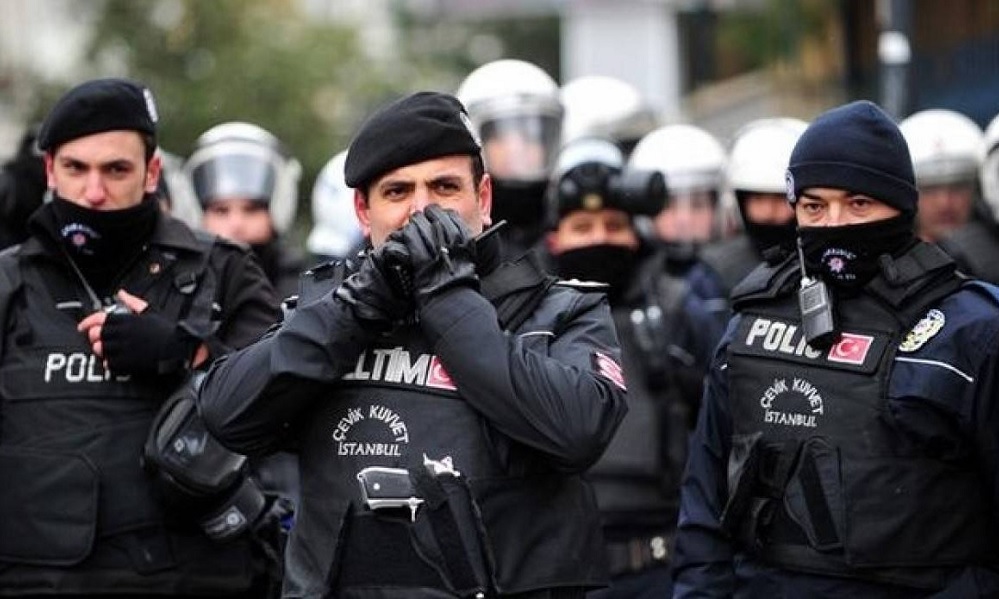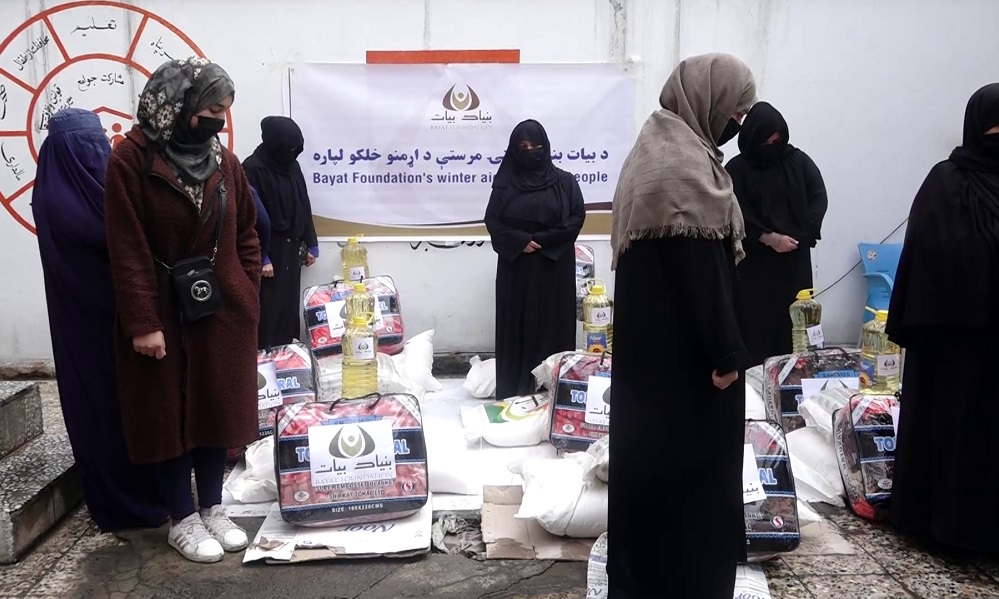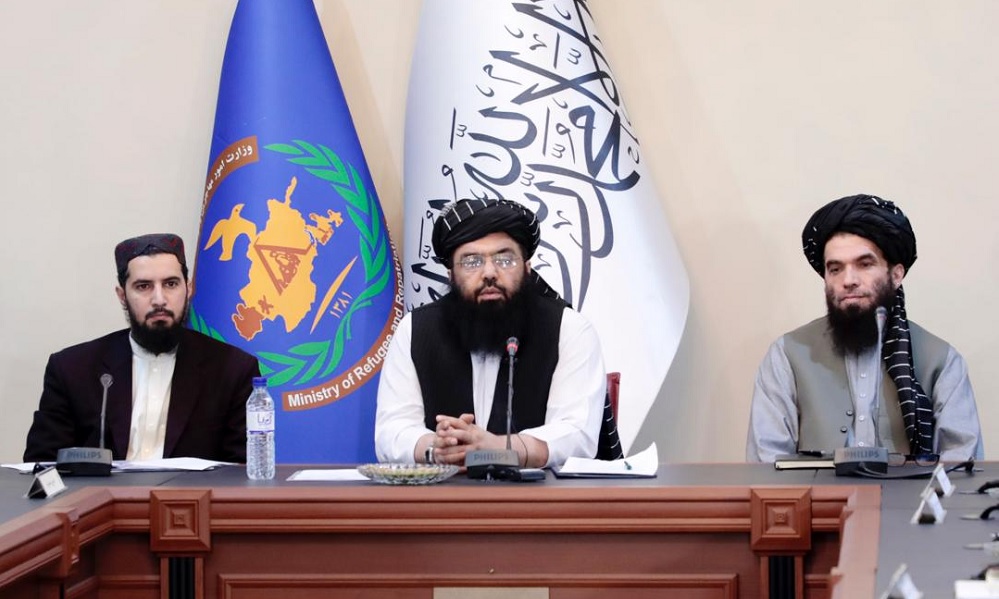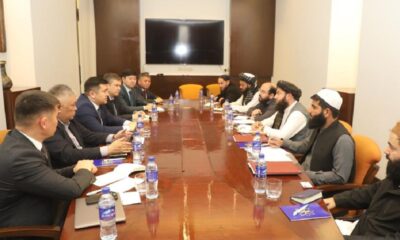Latest News
Rights watchdog, UN and Afghan women band together over ceasefire calls

The Afghanistan Independent Human Rights Commission (AIHRC) and UN Women Afghanistan stated that gendered ceasefires are a prerequisite for peace talks and a negotiated settlement.
In a joint statement issued on Wednesday, the organizations said that women across the globe have long been at the frontlines of conflict and crisis, pioneering ways to end the conflict, participating in peace, and advocating for the rights of women and girls in agreement seeking to end violent conflict.
“Yet often, women’s expertise and priorities are excluded from formal ceasefire agreements and implementation mechanisms. In Afghanistan, women continue to risk their lives every day in the name of peace,” the statement read.
The organizations added that 2020 marked the highest number of women killed since the United Nations Assistance Mission in Afghanistan began systematic documentation in 2009.
Shaharzad Akbar Chairperson of the Afghanistan Independent Human Rights Commission stated: “Why are we talking about ceasefires and peace when the violence rates are so high? Because this is the common demand of all Afghans, across ethnicities, across genders, across geographies, across age groups: the end of war and ceasefire. From a human rights perspective, from all perspectives, this the biggest need, working for peace”
The publication – Gender-responsive ceasefires and ceasefire agreements – was launched for highlighting how a gender-responsive ceasefire is urgently needed in the context of Afghanistan to secure the conditions for meaningful peace talks, the statement noted.
The publication outlines a practical set of recommended entry points for securing gender-related provisions in the ceasefire text as well as outlining how ceasefire agreements can address the gender dynamics of conflict, the organizations said.
The publication was launched at an event in which Abdullah Abdullah, Chairperson of High Council for National Reconciliation; Hasina Safi, Acting Minister of Women’s Affairs; Habiba Sarabi, Member of Peace Negotiation Team of the Islamic Republic of Afghanistan; and Mette Knudsen, Deputy Special Representative of the US Secretary-General were present.
The event featured a collective call for a ceasefire from Afghan women across provinces and the international community in Kabul to put an end to all forms of violence, the organizations noted.
“For the last 40 years, women have been the major victims of war. If we really want a ceasefire that lasts, we need women to be part of it and all their needs must be taken very well into consideration. Peace is what all Afghan people want. A just peace, a peace for all. A justified peace that takes the rights of all Afghans into consideration,” Abdullah Abdullah said.
“Today’s discussion, on gender provisions in ceasefire agreements, is very timely for Afghanistan. The need to reduce violence remains. Women are concerned that their rights will be at risk, they are concerned that the civil society space is shrinking. All Afghans, particularly women, are asking for an end to violence in all its forms,” said Mette Knudsen.
Aleta Miller, a UN Women Representative in Afghanistan, stated that Afghanistan can lead the world on peace processes.
“Globally, peace processes say little or nothing about women’s rights, and statistically equality between women and men is a pre-requisite for long-lasting peace. Afghanistan can and should be different. But for any progress to happen, violence, in all its forms, must stop. It must stop now and forever, for any peace to happen, for any peace to last, for any progress.” Miller said.
Latest News
Turkish intelligence captures a Daesh member near the Durand Line

Turkish intelligence agents have captured a senior member of Daesh near the Durand Line, reportedly preventing planned suicide attacks in Turkey and other countries, according to Turkey’s state-run Anadolu Agency on Monday.
The suspect, identified as Mehmet Goren, is a Turkish citizen. He was apprehended during a covert operation and transferred to Turkey. Details on the timing of the operation or the involvement of Afghan and Pakistani authorities were not disclosed.
According to the report, Goren had risen through the ranks of Daesh and was allegedly tasked with carrying out suicide bombings in Turkey, Pakistan, Afghanistan, and Europe.
Daesh has a history of deadly attacks in Turkey, including the January 1, 2017 shooting at an Istanbul nightclub that killed 39 people.
Anadolu Agency reported that Goren’s arrest also provided intelligence on the group’s recruitment strategies and planned activities.
Latest News
Dozens of needy families in Kabul receive winter aid from Bayat Foundation

Dozens of needy families in Kabul’s fifth district have received essential winter assistance from the Bayat Foundation, as part of ongoing efforts to ease hardship during the cold season and worsening economic conditions.
According to foundation officials, the aid package includes staple food items such as flour, rice, and cooking oil, along with warm blankets to help families cope with freezing temperatures. Haji Mohammad Ismail, Deputy Head of Bayat Foundation, said the distribution began in Kabul and will soon be expanded to other provinces.
“Our assistance includes flour, rice, cooking oil, and blankets,” Ismail said. “Today, we started distributing these items in Kabul’s fifth district, and God willing, the aid will reach other provinces in the near future.”
Afghanistan continues to face widespread poverty, unemployment, and food insecurity, with many families struggling to meet basic needs, particularly during winter when access to work and heating becomes more difficult.Humanitarian organizations and charitable foundations have stepped up relief efforts to support those most affected.
Beneficiaries welcomed the assistance, describing it as a lifeline. “May God bless you for helping the poor. We had nothing and no work,” said one recipient. Another added, “Thank you for your help. Our flour was almost finished.”
Bayat Foundation officials stressed that winter aid distributions will continue in Kabul and other provinces in the coming days, as part of their broader commitment to supporting needy families across the country.
Latest News
Nearly seven million Afghan refugees return home since Islamic Emirate’s takeover

Since the Islamic Emirate came to power, approximately 6.8 million Afghans have returned home, either voluntarily or forcibly, from neighboring countries and other nations, according to the Minister of Refugees and Repatriation.
Mawlawi Abdul Kabir, speaking at a meeting on finalizing a draft plan for a permanent migration solution in Afghanistan, added that 1.3 million Afghans have been internally displaced due to natural disasters during the same period.
With winter approaching, widespread poverty and severe cold are threatening thousands of lives. Meanwhile, the forced expulsion of Afghan migrants from neighboring countries, particularly Iran and Pakistan, continues.
The Islamic Emirate has repeatedly urged neighboring states to allow migrants to return voluntarily. According to UNHCR, over two million Afghans have returned from Iran and Pakistan since the start of 2025.
-

 Latest News2 days ago
Latest News2 days agoAfghanistan signs 30-year deal for marble mining in Daikundi
-

 Latest News4 days ago
Latest News4 days agoAfghan border forces prevent illegal entry of hundreds into Iran
-

 Latest News3 days ago
Latest News3 days agoPakistan summons Afghan diplomat over deadly attack in North Waziristan
-

 Latest News3 days ago
Latest News3 days agoAfghan health minister calls for medical cooperation between Kabul and New Delhi
-

 Latest News4 days ago
Latest News4 days agoJapan allocates nearly $20 million in humanitarian aid for Afghanistan
-

 Latest News3 days ago
Latest News3 days agoKarzai urges reopening of girls’ schools and universities for Afghanistan’s bright future
-

 Health5 days ago
Health5 days agoAfghanistan seeks India’s support in standardizing traditional medicine
-

 Business5 days ago
Business5 days agoAfghanistan-Kazakhstan banking ties discussed in Kabul meeting
























